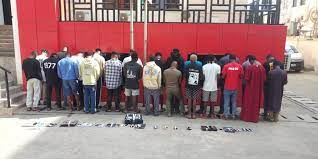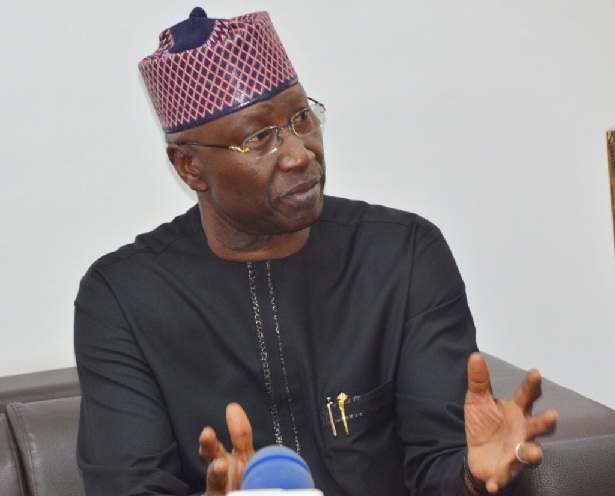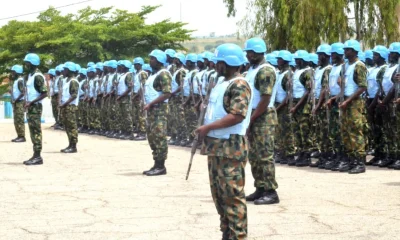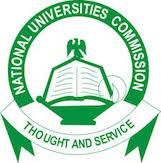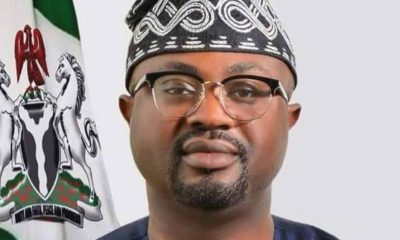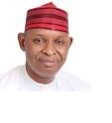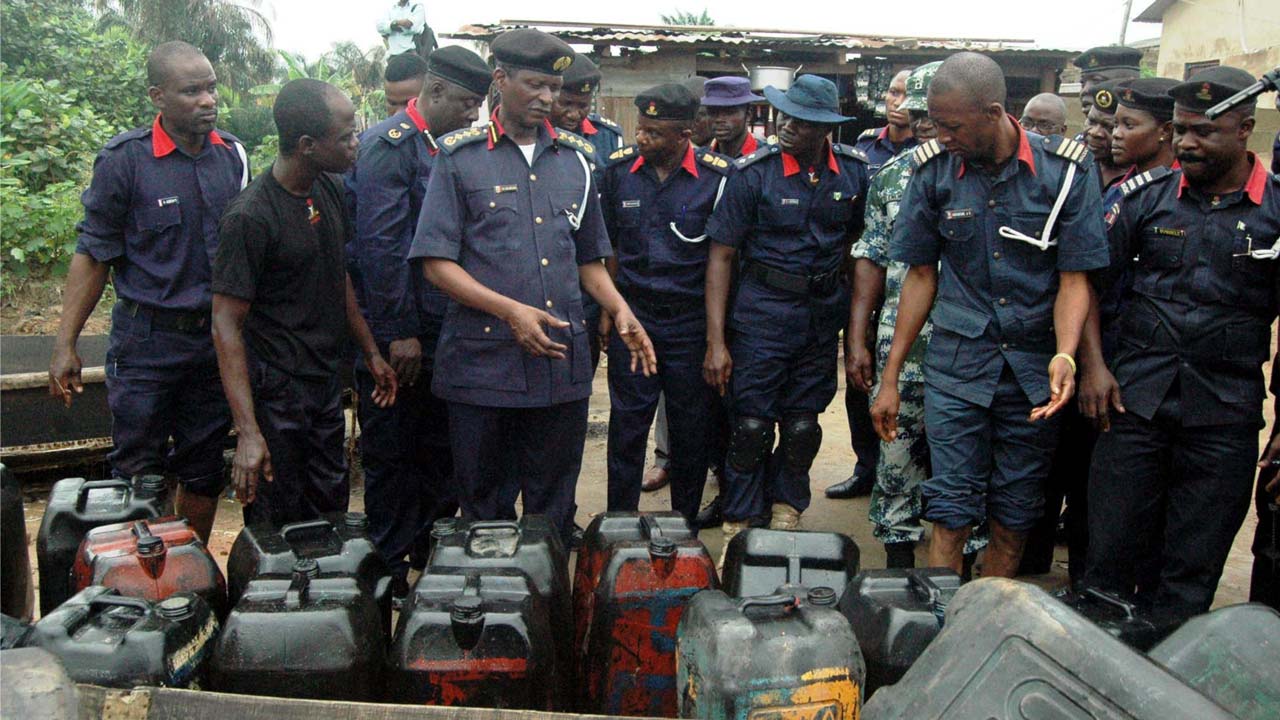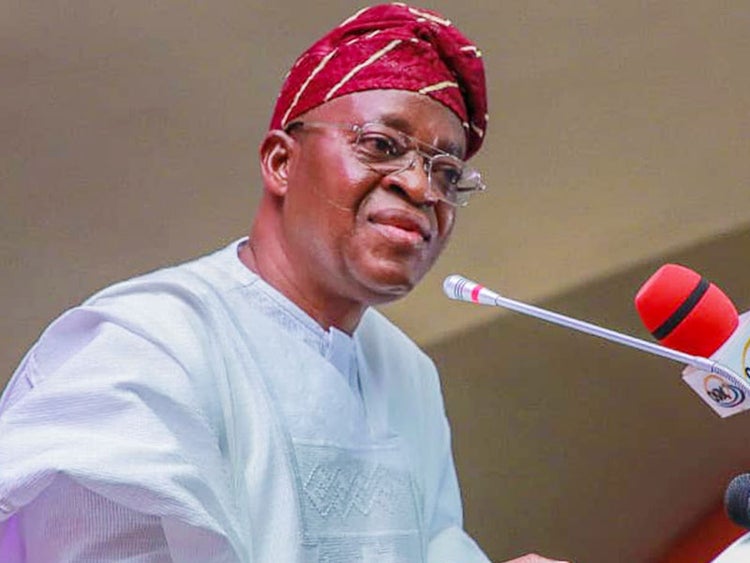People
Buhari Celebrates His Vice, Osinbajo at 63

By Mathew Dadiya, Abuja
President Muhammadu Buhari, on Sunday sent a hearty congratulatory message to his Vice, Prof. Yemi Osinbajo, SAN, as he celebrated his 63rd birthday Anniversary.
Senior Special Assistant to the President on Media and Publicity, Mallam Garba Shehu, said that President Buhari had in a telephone call Sunday afternoon to his deputy, commended Prof.
Osinbajo’s loyalty and dedication to the administration.Buhari noted that the intellectual capacity of the Vice-President has impacted positively on the overall accomplishments of the Federal Government, most notably, in the economic and social intervention programmes.
The President joined family members, friends and associates of Prof.
Osinbajo in wishing him joyous birthday celebrations.He also prayed Almighty God to endow the Vice-President with greater wisdom and long life to continue to serve the nation and humanity.
Also, congratulating the number two citizen, the Minister of State, Petroleum Resources, Timipre Sylva described Professor Yemi Osinbajo, as quintessentially one of the most reliable, dependable and progress oriented leaders we have in this era.
“A perfect blend of intellectualism, work ethic, service to God and service to Nation, Our country has benefitted, enormously, from his virtues,” Sylva said.
The Minister, in a statement by his Technical Assistant, Media and Strategy, Blossom Ozurumba, said, “on this auspicious day, I wish him the best of health, continued favour, grace and the sustained love, protection and blessings of God.”
OPINION
Psychological Appeal to Ex Emir Aminu Ado Bayero
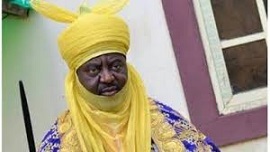
By John Egbeazien Oshodi
The controversy began with the reinstatement of Muhammadu Sanusi II, as Emir by Governor Abba Yusuf, following the repeal of a law that had previously led to Sanusi’s deposition. Amidst these legal proceedings, your return to Kano and the subsequent tensions highlight the complexities of political and traditional leadership dynamics.
Dear Ex Emir Bayero,
In the midst of the current political and legal turmoil, it is essential to pause and reflect on the principles of honor, integrity, and wisdom that have long been associated with your esteemed lineage.
As a leader revered for your adherence to rules and traditions, you have the unique opportunity to exemplify the highest standards of leadership in these challenging times. I write to you as a native Nigerian, deeply invested in the peace and prosperity of our great nation. We have never met, and I have no allegiance to any name here.A Kano state high court has issued an order restraining you from presenting yourself as the Emir of Kano pending the determination of the ongoing suit. This legal battle is not just a matter of personal contention but a significant event that impacts the peace and stability of the entire Kano region. The court’s mandate, along with the police securing the Nasarawa palace, underscores the gravity of the situation and the need for compliance with judicial rulings.
The controversy began with the reinstatement of Muhammadu Sanusi II, as Emir by Governor Abba Yusuf, following the repeal of a law that had previously led to Sanusi’s deposition. Amidst these legal proceedings, your return to Kano and the subsequent tensions highlight the complexities of political and traditional leadership dynamics.
It is reported that former governor and APC chairman Abdullahi Umar Ganduje, who played a role in your initial appointment, has been utilizing various interests and means, including a controversial ex parte order issued by Justice Mohammed Liman from the United States, to support your position. However, this action contradicts Nigerian judiciary policies and has raised significant concerns about federal overreach and the potential misuse of power.
As a respected figure, the media has consistently described you as a man of honor and a leader who follows rules. This is a moment to reaffirm these qualities. By acting with integrity and wisdom, you can set a powerful example for your followers and the broader community. It is crucial to recognize that this matter falls within the jurisdiction of the state government and judiciary. The involvement of federal forces, including the military and police, further complicates the situation and risks escalating tensions.
Consider the stance of Alhaji Aliyu Ibrahim Abdulkadir, the former Emir of Gaya, who has accepted his removal as an act of God and expressed no intention to challenge the decision in court. His dignified acceptance serves as a powerful testament to the strength of character and resilience. By choosing a similar path, you can help ease the current tensions and contribute to the restoration of peace and stability in Kano.
Governor Yusuf has been advised by this writer in an earlier publication that strategic psychological approaches be employed in dealing with the situation. By gradually diminishing the resources and authority at your disposal, it becomes clear that the influence of external political figures like Ganduje cannot override the unified resolve of the state. The reality of diminishing power, finances, and resources will inevitably set in, and it is wise to acknowledge this shift and act accordingly.
Governor Yusuf has appealed to President Tinubu to relocate you from Kano to mitigate the threat to peace. This plea underscores the need for a resolution that prioritizes the well-being of the people of Kano over political or personal interests. You do not need to wait for Tinubu; your cooperation in this regard would not only demonstrate your commitment to peace but also reinforce the respect and admiration that the public holds for you.
Ex Emir Bayero, this is a pivotal moment that calls for a leader of your stature to rise above the fray and act in the best interests of the community. You are caught between two warring political figures, Yusuf and Ganduje. By listening to the voice of reason and adhering to the principles of justice and honor, you can help navigate this crisis towards a peaceful resolution. Your actions today will not only define your legacy but also set a precedent for future generations.
The now troubled situation, exacerbated by political heavyweights like Ganduje, stands powerless against the unified resolve of the people and the enduring spirit of the state. The recurrent misuse of federal authority, including judicial bias, coercive policing, and military intervention, cannot sustain one individual’s ambitions against the democratic will of the entire state.
By aligning with the people and upholding democratic ideals, you can transcend political discord and advocate for enduring principles of fairness and righteousness. The people of Kano will honor your legacy if you transcend political turmoil and exemplify leadership grounded in justice and equity.
May wisdom and peace guide your decisions. May Allah bless you now and in the future Sincerely.
Professor John Egbeazien Oshodi, born in Uromi, Edo State, Nigeria, is an American-based police and prison scientist, forensic psychologist, public policy psychologist, and legal psychologist. He’s a government advisor on forensic-clinical psychological services in the USA and the founder of the Dr. John Egbeazien Oshodi Foundation for Psychological Health. With a significant role in introducing forensic psychology to Nigeria through N.U.C. and Nasarawa State University, he’s also a former Secretary-General of the Nigeria Psychological Association. He’s taught at esteemed institutions like Florida Memorial University, Florida International University, Nova Southeastern University, and more, and is currently an online faculty member at Weldios University, Nexus International University, and Walden University.
People
UK Life: Where Love Is Hard And Sex Is Easy

Virtually every week, a Nigerian abroad comes out on social media to lament the scarcity of partners for meaningful romantic relationships. In recent times, we have had a more frequent outcry from women. Not just average women but beautiful and classy ones. What do you think is the problem? Are the men going extinct? Let’s dive into this topic from a UK experience.
Have you ever felt lonely despite being in a very crowded space? It is a weird feeling.
Everybody wants to help and at the same time, nobody wants to help. This is what dating in the United Kingdom seems like.Here are some reasons why it might be challenging finding a partner abroad:
(1) Culture shock:
The United Kingdom is a multicultural society.
You get to meet Indians, Africans, Chinese, Pakistanis, Europeans, and generally people from different works of life. Their belief systems, behaviours, and different approach to issues are different. People naturally avoid what they find strange and this could affect romantic relationships.(2) Ethnic Division:
In most cities in the UK, people don’t mix especially outside work. The people have doctorate degrees in ‘minding their businesses’. The Chinese roll with the Chinese, Indians to Indians and Nigerians roll with their own. People just feel more comfortable with their own.
(3) Too fast, too busy:
Life in the UK is just too busy and fast especially if you are a fresh immigrant. You might have to deal with the rigours of work and school as they run concurrently. These two engagements might make a whole year look like 6 months. Oftentimes, romantic relationships take a secondary position. Some people would pick shifts over romantic dates because that is what pays the bills.
(4) Historical concerns:
Before the tier 4 visas became popular, most Africans saw the locals as keys to their stay in the country. Relationships have always been a means to an end in the UK. A selfish end so to speak. The nefarious activities of internet fraudsters have always complicated interracial relationships. For this reason, most tier 4 visa holders or citizens are wary of new entrants.
A lady who holds a British passport or Tier 2 visa might doubt the love interest of a suitor holding a tourist or student visa. There is widespread distrust in the country and nobody wants to be used as a ladder to step up. Consequently, some potential good men slip under the radar.
(5) Stereotype:
Nigerians don’t have the best reputation in the UK. This is related to the previous point made. This has led to hasty generalisation and unwarranted assumptions. On dating sites/apps, some people will not talk to you because you are a Nigerian. This might be due to an adverse experience or an ordeal told by a friend, or family member about their experience with a Nigerian.
(6) Ego:
The UK has so many successful women. Most of them become big-headed as career success and financial breakthroughs come. They tend to desire men in or above their social/economic class. But African men in their supposed class fear women like them because of issues around control. Men don’t want to travel on a ship with two captains. Before you know it, one woman is still single at 40 despite her beauty and achievements.
(7) Small population of Nigerians:
Despite the Japa Syndrome, Nigerians are in the minority in the UK. Out of a population of over 67 million people, Nigerians account for just 0.5% which is 271,390 in England and Wales. Most Nigerians come to the UK married. These two factors limit the available options on who to date. Even if you want to consider someone outside your ethnic background, they might not be interested in you.
(8) Racism:
Due to the sensitivity of this topic, I will not dwell too much on it. It has been criminalized, but it is still what it is. Coloured people are not really in demand except for people who just want to briefly explore. Call that jungle fever!
(9) Lack of intentional efforts:
In the UK, you have to consciously work towards getting married. Attend social gatherings, meet people, shoot your shots, join dating apps, join churches, approach people for relationship referrals, and never give up when you hear a ‘no’. You might just be lucky the next time you try.
(10) Marriage isn’t a big deal:
People in the UK are not so big on marriage compared to their counterparts in Africa. I have a colleague who has been engaged for years; nothing is happening and nobody is under pressure. In Nigeria, people will ask questions like “Are you Froddo in the ‘Lord of the Rings’?”
Generally, people just live together as partners for years and have kids together without being married. An African might frown at this on cultural and religious grounds.
(10a) Accent:
Relationships start with active and good communication. In the UK, some accents are just too complicated to understand. This makes verbal communication stressful. Most people become easily uninterested in those that don’t speak like them.
(10b) Indiscriminate s*x:
Due to loneliness and cold weather, most people just want to have fun with no strings attached. They want to experience that crazy feeling of intimacy for the moment. Since society doesn’t attach importance to ‘body counts’, people jump on as many beds as possible. This is paramount amongst single parents. Single mothers just want to drink alcohol on Friday nights and have sx without entanglements. They tend to enjoy their sxual freedom and conclude that serious relationships might take that away. If care isn’t taken, a woman might wake up to realize that she has had more sxual partners than a full-time prostitute at the end of the year. Sx is easy, love is hard.
These are some of the reasons I have been able to come up with. I’m pretty sure they could be extended.
Conclusion
It is possible to find love in the UK, although it is tricky. The key is being very intentional about the love search. From my personal research and experience, I believe the most effective way is through referrals. When you meet nice people, tell them to introduce you to their like-minded single friends or family members. Make your intentions clear. This is equivalent to getting references for a job application. Additionally, expand your social circles, and join African churches with huge members. Some pastors take it upon themselves to matchmake people and it works. Dating apps might not be the most ideal place to seek a meaningful relationship, but we never say never.
FEATURES
IBB at 82: What Would IBB Have Done?

By Chidi Amuta
Today, former military president, General Ibrahim Babangida, turns 82. It has become my annual personal tradition to use the opportunity of his birthday each year to highlight the perennial relevance of the policies, ideas and practices that he emplaced over three decades ago to our preset circumstances.
Each time we are confronted with a major national challenge, the question that has come to my mind has always been: What would IBB have done? I raise the same rhetorical question today in the light of the issues that confront our new administration.The Niger Coup and ECOWAS
Perhaps the most burning issue today the coup in Niger Republic and the spotlight on Nigeria’s leadership responsibility as a force of stabilization in the West African sub region. As IBB observes his birthday today, it might be helpful for our younger generation and the political leadership of today to have an insight into how IBB used the projection of Nigeria’s power to stabilize war torn Liberia and later Sierra Leone.
Of course the circumstances were somewhat different. Nigeria was under military rule transiting to democracy. But our leadership place in West Africa and indeed the entire continent was not in question. The strength of our military was in tact just a sour commitment to political stability and democratization were all values deserving external projection.
Babangida’s grand vision of Nigeria saw a bolder more assertive and even regionally powerful Nigeria. With Prof. Bolaji Akinyemi as Foreign Minister, Babangida pursued the kind of bold and activist foreign policy that only befits an ambitious regional power. He was not shy to project Nigeria’s power in the West African sub region hence his direct military intervention in the civil wars in both Liberia and Sierra Leone. He saw the civil wars in both countries as direct threats to the security of West Africa. His friend, Ghanaian head of state, Jerry Rawlings. shared his commitment. They did not wait for endless summits or convoluted resolutions. They led the charge. Others followed. ECOMOG was born.
In August 1990, a contingent of the Nigerian military landed at the port of Monrovia to commence what became the ECOMOG operation. As the vessels approached Monrovia, the transmission station of “Radio Freedom” which was onboard came alive with messages of hope beamed to the Liberian people. The Nigerian force was supported by a small Ghanaian contingent, which was allowed to provide the founding force Commander of ECOMOG ,General Arnold Quainoo.
ECOMOG succeeded in separating the warring factions. It later graduated into an ECOWAS wide intervention initiative which stabilized the situation in Liberia. In subsequent years, ECOMOG expanded into troubled Sierra Leone with the stationing of an air base with a squadron of Nigerian Alpha jets. That neutralized the rebels in rural Sierra Leone. Through Nigeria’s leadership, ECOMOG became an African model in the use of national power to stabilize a region. The OAU and the UN later supported the initiative into a multilateral initiative.
Choosing a Cabinet
As the nation awaits the swearing in of President Bola Tinubu’s cabinet, national discourse has concentrated on the quality of most of the nominees. In a nation that boasts of some of the most outstanding technocrats and intellectuals in diverse fields, the mediocrity of the Tinubu selection has embarrassed many. There may be no basis for measuring Tinubu’s choices against those of Babangida over thirty years ago.
Tinubu is a partisan politician. He has political debts to pay. He has to contend with a constitution that requires that each state be represented by one minister at least. He also has to rule over a nation that has literally been overrun by a degraded value system. On the contrary, IBB headed a military regime with no parliament to please. Meritocracy and the national interest were the abiding considerations. Political charlatanry was not in the picture.
IBB was an enlightened and ideas-driven president. His constant companions were mostly from among the nation’s outstanding men and women of ideas. He constantly sought the diverse views and perspectives of intellectuals. He recruited them to work with him as ministers, advisers, heads of specialized agencies and friends. To date, the Babangida administration featured the largest collection of people of ideas in government. Just a sampling:
- Olikoye Ransome Kuti- Health
- Bolaji Akinyemi – External Affairs
- Babs Fafunwa – Education
- Jibril Aminu – Petroleum Resources/Education
- Tam David West – Petroleum Resources
- Kalu Idika Kalu – Finance
- Chu S. P Okongwu- National Planning/Finance
- Gordian Ezekwe – Science and Technology
- Emmanuel Emovon – Science and Technology
- Sam Oyovbaire – Information
- Wole Soyinka – Federal Road Safety Corps
- Eme Awa/Prof. Humphrey Nwosu – National Electoral Commission
- Ojetunji Aboyade- Economic Reform Adviser
- Tunji Olagunju – Political Adviser
- Ikenna Nzimiro- Adviser
- Akin Mabogunje – Adviser
- Isawa Elaigwu – Adviser
- Chief Michael Omolayole –Adviser
Fighting Inequality
Another matter of present national interest is the viral spread of multi dimensional poverty. Nigeria has in the last decade become the world’s poverty capital with an estimated population of 130 million poor people.
For Babangida, the main thrust of economic reform was the migration of Nigeria from a mixed economy to a free market format. He recognized that poverty and inequality would increase. His quest for a new social order involved a deliberate policy of poverty mitigation.
General Babangida believed that it was the responsibility of a compassionate government to give capitalism a human face by mitigating the alienating effects of market competition hence the efforts to ameliorate the harsh effects of the Structural Adjustment Programme (SAP). The result was easily our most systematic and well thought out poverty alleviation programme to date containing:
- The Directorate for Food, Roads and Rural Infrastructure (DFRRI)
- The Peoples Bank
- Community Banks
- National Directorate of Employment
- The National Economic Recovery Fund (NERFUND)
- The Mass Transit Programme
Institution Building
It has been said in recent times that a major part of Africa’s development has been the preponderance of strong man and a lack of strong institutions. Central to Babangida’s grand vision and its enabling strategy was the creation of strong national institutions. In the domestic sphere, Babangida was obsessed with the establishment of a robust institutional framework for nation building. In the entire history of post -colonial Nigeria, the Babangida administration is on record for establishing the highest number of national institutions in major areas of national life. Most of these institutions have endured to the present including:
- Corporate Affairs Commission -CAC(1990),
- National Communications Commission-NCC(1992),
- National Deposit Insurance Corporation-NDIC(1988),
- National Broadcasting Commission-NBC(1992),
- National Electoral Commission
- Technical Committee on Privatization and Commercialization(TCPC) which became the BPE-(1988).
- The National Drug Law Enforcement Agency (1989)
- The Federal Road Safety Corps (FRSC) –(1988).
- Technical Aid Corps (1987)
- National Agency For Food and Drug Administration NAFDAC (1993)
- National Women’s Commission (1992)
Accordingly, Babangida reorganized the Nigeria Police into the present zonal command structure. Similarly, the architecture of national intelligence and security was reorganized from the former monolithic National Security Organization(NSO) to the present three branch structure of:
- The State Security Service(SSS), now DSS
- National Intelligence Agency(NIA) and
- Defense Intelligence Agency(DIA).
Insecurity and the National Guard Idea
Our insecurity remains almost intractable. Up to the time he left office, Babangida was never in any doubt about the unsettled nature of inter-ethnic relations among Nigerian groups. It was his conviction that our federation was still unsettled, with many real and potential flash points. He believed that the present and future nature of our internal security challenges would overwhelm the police and distract the professional military.
Accordingly, he believed that the police is too mild and civil to contain armed insurgency while the military is too fierce to be pressed into combatting fellow Nigerians with its doctrine of terminal precision. The solution was to establish a mid intensity intermediate force- the National Guard- based in the states and specially trained and indoctrinated to manage internal security with a mixture of resolute force and patriotic compassion. The National Guard was shot down by political hawks.
Today is a new day. IBB is 82. He left office over 30 years ago. As in previous years, it is my pleasure to join his other friends and family to celebrate a true friend and a truly outstanding nation builder and timeless patriot.
z
Today, former military president, General Ibrahim Babangida, turns 82. It has become my annual personal tradition to use the opportunity of his birthday each year to highlight the perennial relevance of the policies, ideas and practices that he emplaced over three decades ago to our preset circumstances. Each time we are confronted with a major national challenge, the question that has come to my mind has always been: What would IBB have done? I raise the same rhetorical question today in the light of the issues that confront our new administration.
The Niger Coup and ECOWAS
Perhaps the most burning issue today the coup in Niger Republic and the spotlight on Nigeria’s leadership responsibility as a force of stabilization in the West African sub region. As IBB observes his birthday today, it might be helpful for our younger generation and the political leadership of today to have an insight into how IBB used the projection of Nigeria’s power to stabilize war torn Liberia and later Sierra Leone.
Of course the circumstances were somewhat different. Nigeria was under military rule transiting to democracy. But our leadership place in West Africa and indeed the entire continent was not in question. The strength of our military was in tact just a sour commitment to political stability and democratization were all values deserving external projection.
Babangida’s grand vision of Nigeria saw a bolder more assertive and even regionally powerful Nigeria. With Prof. Bolaji Akinyemi as Foreign Minister, Babangida pursued the kind of bold and activist foreign policy that only befits an ambitious regional power. He was not shy to project Nigeria’s power in the West African sub region hence his direct military intervention in the civil wars in both Liberia and Sierra Leone. He saw the civil wars in both countries as direct threats to the security of West Africa. His friend, Ghanaian head of state, Jerry Rawlings. shared his commitment. They did not wait for endless summits or convoluted resolutions. They led the charge. Others followed. ECOMOG was born.
In August 1990, a contingent of the Nigerian military landed at the port of Monrovia to commence what became the ECOMOG operation. As the vessels approached Monrovia, the transmission station of “Radio Freedom” which was onboard came alive with messages of hope beamed to the Liberian people. The Nigerian force was supported by a small Ghanaian contingent, which was allowed to provide the founding force Commander of ECOMOG ,General Arnold Quainoo.
ECOMOG succeeded in separating the warring factions. It later graduated into an ECOWAS wide intervention initiative which stabilized the situation in Liberia. In subsequent years, ECOMOG expanded into troubled Sierra Leone with the stationing of an air base with a squadron of Nigerian Alpha jets. That neutralized the rebels in rural Sierra Leone. Through Nigeria’s leadership, ECOMOG became an African model in the use of national power to stabilize a region. The OAU and the UN later supported the initiative into a multilateral initiative.
Choosing a Cabinet
As the nation awaits the swearing in of President Bola Tinubu’s cabinet, national discourse has concentrated on the quality of most of the nominees. In a nation that boasts of some of the most outstanding technocrats and intellectuals in diverse fields, the mediocrity of the Tinubu selection has embarrassed many. There may be no basis for measuring Tinubu’s choices against those of Babangida over thirty years ago.
Tinubu is a partisan politician. He has political debts to pay. He has to contend with a constitution that requires that each state be represented by one minister at least. He also has to rule over a nation that has literally been overrun by a degraded value system. On the contrary, IBB headed a military regime with no parliament to please. Meritocracy and the national interest were the abiding considerations. Political charlatanry was not in the picture.
IBB was an enlightened and ideas-driven president. His constant companions were mostly from among the nation’s outstanding men and women of ideas. He constantly sought the diverse views and perspectives of intellectuals. He recruited them to work with him as ministers, advisers, heads of specialized agencies and friends. To date, the Babangida administration featured the largest collection of people of ideas in government. Just a sampling:
- Olikoye Ransome Kuti- Health
- Bolaji Akinyemi – External Affairs
- Babs Fafunwa – Education
- Jibril Aminu – Petroleum Resources/Education
- Tam David West – Petroleum Resources
- Kalu Idika Kalu – Finance
- Chu S. P Okongwu- National Planning/Finance
- Gordian Ezekwe – Science and Technology
- Emmanuel Emovon – Science and Technology
- Sam Oyovbaire – Information
- Wole Soyinka – Federal Road Safety Corps
- Eme Awa/Prof. Humphrey Nwosu – National Electoral Commission
- Ojetunji Aboyade- Economic Reform Adviser
- Tunji Olagunju – Political Adviser
- Ikenna Nzimiro- Adviser
- Akin Mabogunje – Adviser
- Isawa Elaigwu – Adviser
- Chief Michael Omolayole –Adviser
Fighting Inequality
Another matter of present national interest is the viral spread of multi dimensional poverty. Nigeria has in the last decade become the world’s poverty capital with an estimated population of 130 million poor people.
For Babangida, the main thrust of economic reform was the migration of Nigeria from a mixed economy to a free market format. He recognized that poverty and inequality would increase. His quest for a new social order involved a deliberate policy of poverty mitigation.
General Babangida believed that it was the responsibility of a compassionate government to give capitalism a human face by mitigating the alienating effects of market competition hence the efforts to ameliorate the harsh effects of the Structural Adjustment Programme (SAP). The result was easily our most systematic and well thought out poverty alleviation programme to date containing:
- The Directorate for Food, Roads and Rural Infrastructure (DFRRI)
- The Peoples Bank
- Community Banks
- National Directorate of Employment
- The National Economic Recovery Fund (NERFUND)
- The Mass Transit Programme
Institution Building
It has been said in recent times that a major part of Africa’s development has been the preponderance of strong man and a lack of strong institutions. Central to Babangida’s grand vision and its enabling strategy was the creation of strong national institutions. In the domestic sphere, Babangida was obsessed with the establishment of a robust institutional framework for nation building. In the entire history of post -colonial Nigeria, the Babangida administration is on record for establishing the highest number of national institutions in major areas of national life. Most of these institutions have endured to the present including:
- Corporate Affairs Commission -CAC(1990),
- National Communications Commission-NCC(1992),
- National Deposit Insurance Corporation-NDIC(1988),
- National Broadcasting Commission-NBC(1992),
- National Electoral Commission
- Technical Committee on Privatization and Commercialization(TCPC) which became the BPE-(1988).
- The National Drug Law Enforcement Agency (1989)
- The Federal Road Safety Corps (FRSC) –(1988).
- Technical Aid Corps (1987)
- National Agency For Food and Drug Administration NAFDAC (1993)
- National Women’s Commission (1992)
Accordingly, Babangida reorganized the Nigeria Police into the present zonal command structure. Similarly, the architecture of national intelligence and security was reorganized from the former monolithic National Security Organization(NSO) to the present three branch structure of:
- The State Security Service(SSS), now DSS
- National Intelligence Agency(NIA) and
- Defense Intelligence Agency(DIA).
Insecurity and the National Guard Idea
Our insecurity remains almost intractable. Up to the time he left office, Babangida was never in any doubt about the unsettled nature of inter-ethnic relations among Nigerian groups. It was his conviction that our federation was still unsettled, with many real and potential flash points. He believed that the present and future nature of our internal security challenges would overwhelm the police and distract the professional military.
Accordingly, he believed that the police is too mild and civil to contain armed insurgency while the military is too fierce to be pressed into combatting fellow Nigerians with its doctrine of terminal precision. The solution was to establish a mid intensity intermediate force- the National Guard- based in the states and specially trained and indoctrinated to manage internal security with a mixture of resolute force and patriotic compassion. The National Guard was shot down by political hawks.
Today is a new day. IBB is 82. He left office over 30 years ago. As in previous years, it is my pleasure to join his other friends and family to celebrate a true friend and a truly outstanding nation builder and timeless patriot.




